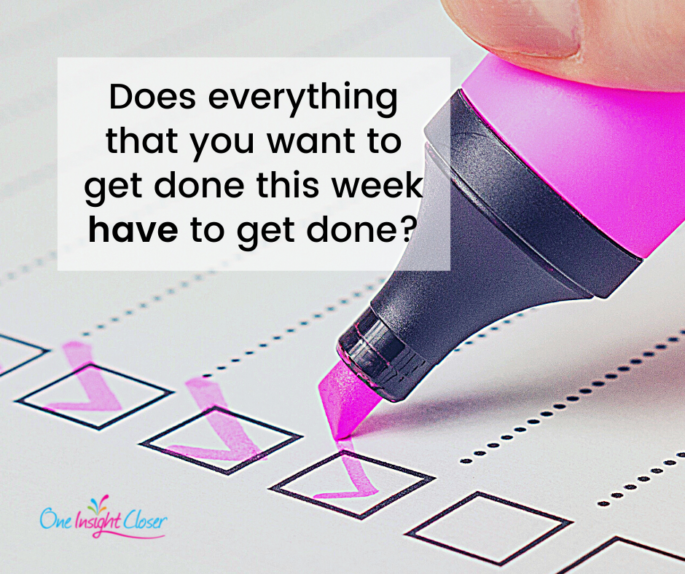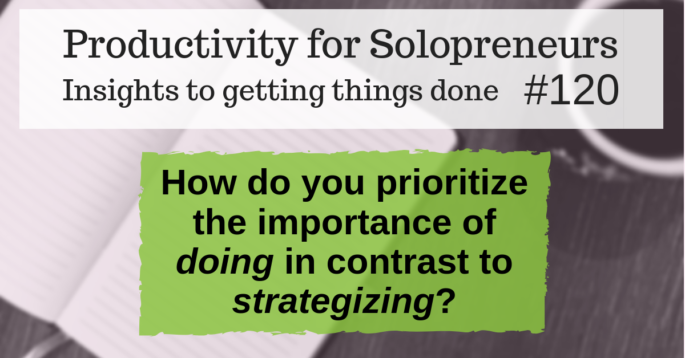If something had to give this week, what would it be?
Or, does everything that you want to get done this week have to get done?
Does that result in frustration because you have important projects or tasks that don’t get completed every week?
After all, unexpected things come up (good and bad) and things take longer than you thought they would. Which means other things don’t get done.
But how do you prepare for things you can’t plan for?
Let me share a little about how I plan things.
I have a list of tasks to be completed each month (you can read more about it here), and I assign these tasks to a week each month.
For example, I schedule most of my social media a month at a time. So, it doesn’t HAVE to be done until the last week of the month, but if I don’t get to it for some reason, then the first week of the following month won’t have posts until I’m able to get to it.
To prevent this, I schedule creating my social media posts for the third week of the month instead of the last week. This way, if I don’t get to it for some reason, I can do it the following week with few issues.
I called it a “Controlled Failure Point.”
The idea of a controlled failure point is to have points of failure that cause minimal ripple effects.
In my social media post example, if something needs to give on the third week of the month, that can be it, and the only repercussion is it’s a higher priority task the following week.
It might feel wrong to plan for things to go a bit off the rails, but this is how you prepare for the things you can’t plan for.
You have nothing to lose and sanity to gain.
If you’re wondering what your “Controlled Failure Point” might look like, ask a question in the comments below.





